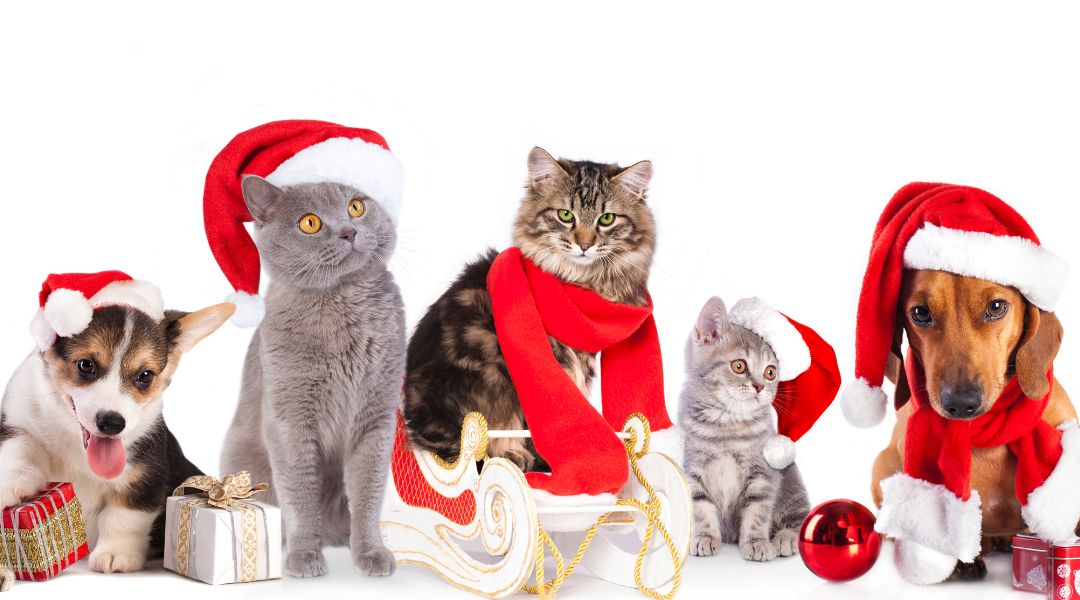Christmas Dangers For Pets

The festive season is upon us! We have commonly encountered a few problems over the Christmas break and so here are a few Christmas dangers for pets to avoid.
Food Dangers
We all know chocolate is poisonous to dogs, did you also know macadamia nuts are too? Grapes and raisins have been linked to renal failure in dogs and are a common food either fresh or in pudding over the Christmas season.
Sultana’s/Raisins
Can be found in Christmas pudding & mince tarts. If consumed, can cause vomiting and diarrhoea, and in some cases this can lead to kidney disease.
Onion & Garlic
Can be found in chicken stuffing. Onion toxicity symptoms may include rapid breathing, pale gums, lethargy, salivation, and vomiting. In severe cases can lead to seizures and death.
Christmas ham
Christmas ham is not considered toxic, however can be quite fatty. This can lead to vomiting & diarrhoea in our pets also know as pancreatitis.
Chocolate
Chocolate contains an ingredient known as ‘theobromine’ that is toxic to pets. This ingredient is in all kinds of chocolate. Higher levels are found in dark chocolate, cooking chocolate, and cocoa. If ingested may cause vomiting, diarrhoea, hyperactivity & excessive urination. In severe cases can lead to seizures and death.
Bones
Never feed cooked bones & do not leave bones out in the sun for long periods of time. Cooked bones can splinter off and cause internal issues such as obstruction or perforation.
Other problems we commonly see is bloat (gastric dilatation volvulus) which occurs more commonly in deep chested dogs. It frequently follows a large meal which is followed by vigorous exercise. Just like Christmas leftovers followed by a romp with the kids! Cooked bones (stomach problems) and fatty leftovers (pancreatitis) have also regularly meant Christmas or Boxing day is spent at the emergency vet clinic!
Gift Dangers
In cats we commonly see vomiting after eating Christmas ribbon (which “ties” the small intestine up, requiring urgent surgery to save their life). Kittens are particularly at risk! Remember too that Christmas lilly’s are toxic to cats and kidney failure is the result. They can chew on the stems or leaves but commonly they just brush past a flower arrangement, get pollen on their coat, and cats being fastidious cleaners lick it off.
Look out for these things, and your pets will have a safer Christmas!
